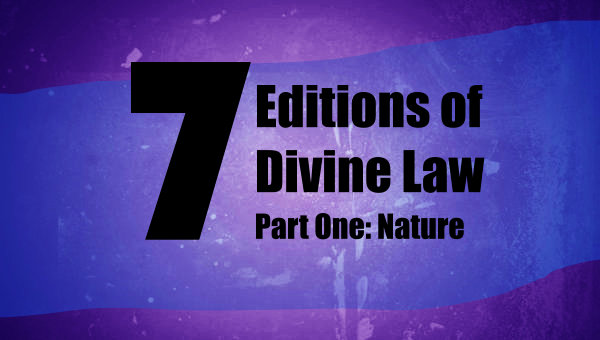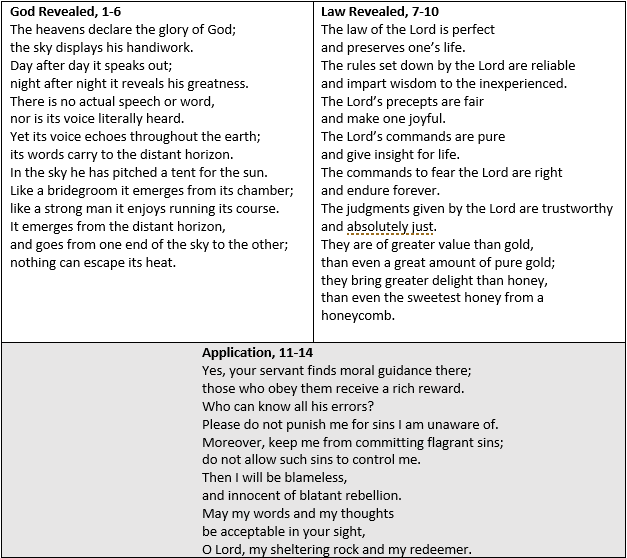By Tyson Thorne

From the very beginning of Creation God has chosen to reveal himself and his law to mankind. Over the millennia that have passed since “day one” there have been seven editions of the revelation of God’s divine law. The first edition was written in nature, Psalm 1.19 says, “The heavens declare the glory of God; the skies proclaim the work of his hands.” Theologians call this “General Revelation” and while its testimony is limited, it also cannot be misunderstood. Paul also makes the argument that God’s attributes are clearly visible in nature in his letter to the Romans:
For since the creation of the world his invisible attributes – his eternal power and divine nature – have been clearly seen, because they are understood through what has been made. So people are without excuse. (Romans 1.20)
Paul’s few words have distinct implications that need to be spelled out clearly.
- General revelation has a limited audience – humankind. It may be witnessed by other beings, included angelic or fallen ones, but it is intended to testify to God’s existence and character to humanity.
- General revelation has a limited reach – the globe. Because this natural testimony is seen in all that is created, it reaches all people’s around the world and who live in all times.
- General revelation is limited in its means—it uses nature to communicate. It brings light and understanding if accepted, and condemnation if rejected.
There is so much more that we can learn from Creation, however. Paul tells us in the passage above that we can learn two principles of God’s character from nature: his supremacy and his divine nature. Paul also argued (before the Lydians, Acts 14.16-17) that God can providentially control nature and that God is not like fate or god’s made of wood or stone or metal in that he is both alive and intelligent (an argument he made to the Athenians in Acts 17.28-31).
But Paul isn’t the only authors of Scripture who understood that the revelation of God and of his law were visible in the natural world. Matthew also argues in his gospel (5.45) that God’s goodness is evident in nature. If God is revealed in nature, then so too are the important parts of his law. King David, in Psalm 19 demonstrated this perfectly:
These observations are nowhere near exhaustive. What else can you discern about God’s character and law from nature? I have known some who see evidence in biology, botany, animal behavior, physics and more. Tomorrow we’ll examine the second edition of Divine Law, our conscience.

